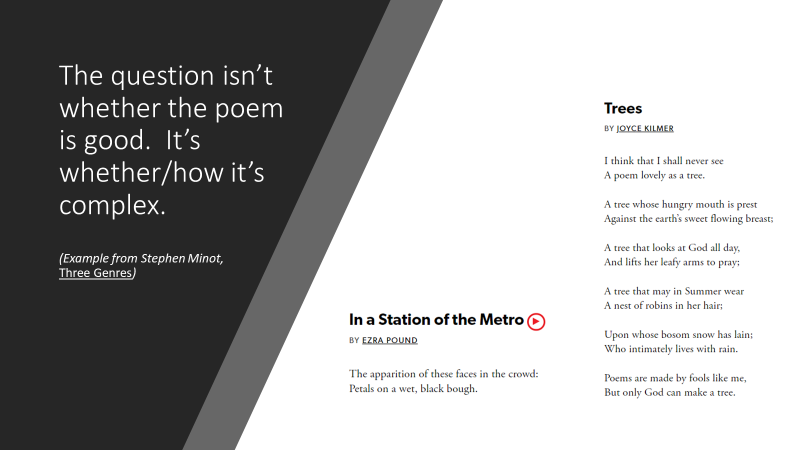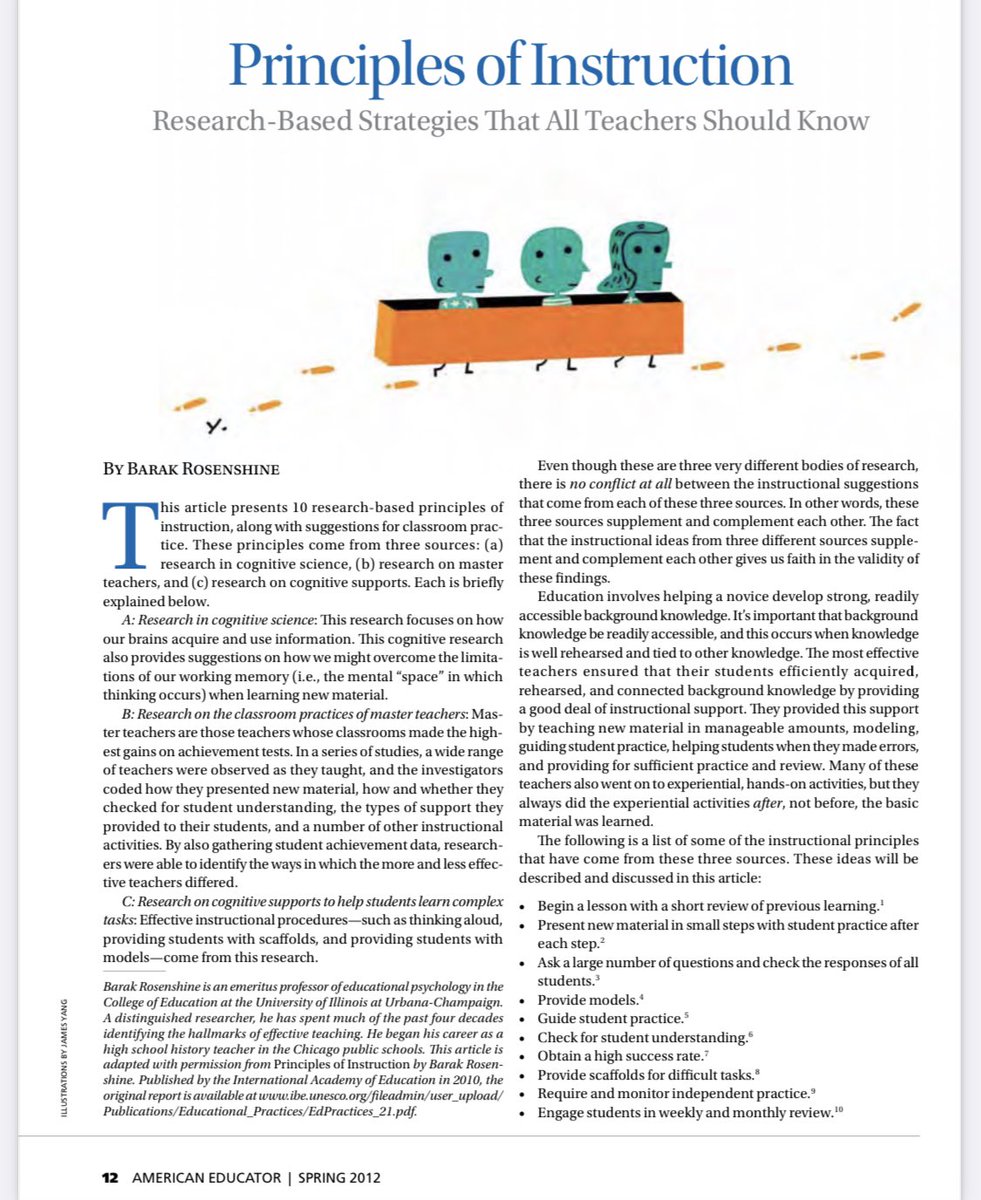English teachers: In this🧵, I'll share some research & articles to convince you genre matters more than you think it does, regardless of grade span. AND if you read to the end, I'll share a free resource to help you take action! Take 5 mins & join me!... #literacy #teamenglish
...Let's wade in slowly — with some Renaissance Art! Check out this painting from Giuseppe Arcimboldo: an upside-down fruit bowl almost immediately looks like a face to us: something called "pareidolia." Our brains are trained to see it based on our experience. (cool, right?)… 

…You've likely experienced this at school. Eye-tracking research suggests that experienced teachers notice different things than novice ones when they watch videos of instruction (e.g. spotting un-engaged students).… bit.ly/3XewGHC 

...So how does this connect to genre? Well, what we understand about genre helps affect what we'll attend to when we read. Genre *is* expectation. It's a very specific type of knowledge that doesn't just inform our reading, it directs it.... 

...Another way of putting it is that “text genres are useful once they have been learned because the reader will quickly know what to expect from the text and where to read for certain types of information.”... core.ac.uk/download/pdf/2… 

...I do realize that genre is slippery. Genres get mashed together, & writers play against these expectations all the time. But you need to have a sense of conventions for those choices to make sense.... jstor.org/stable/j.ctt4c… 

...So, it'd be reasonable to think that a reader's understanding of genre has an effect on comprehension, and in fact it does! (At least at high-level, where it gets studied the most.) But I don't think this is just a beginning readers kinda thing...
doi.org/10.1037/0278-7…
doi.org/10.1037/0278-7…

...Peter Rabinowitz's whole argument in Before Reading centers on these expectations and instincts guiding us as advanced readers. He says: "intensive reading may well be a worthless skill for someone who has not already devoured a large and heterogeneous collection of texts."... 

...All right, time to land this plane. As instructors, we could certainly create a lesson asking students to ponder genre rules and contrast examples and non-examples. (If you've done this, I'd love to see it!) But here's a quick move you could make tomorrow…
…Linked are genre 1-pagers to help students preview prose. They can use this reference to help them ID & orient themselves to genres when class encounters a new text. So thinking about genre becomes a habit of mind, not an afterthought...bit.ly/3QLRuDC 

… OK, enough from me! Would love to hear your own genre work or your thoughts. Or, if you prefer, check out this article on some genres you may be less familiar with, and let me know some of the interesting ones you've encountered in your travels. vox.com/2018/12/27/181…
• • •
Missing some Tweet in this thread? You can try to
force a refresh











